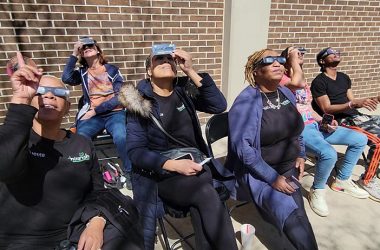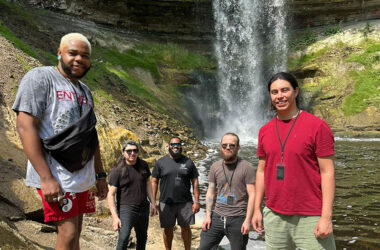
History-making music: How the Burke Brothers made beautiful music
Kirkland Burke and his brother Sonny were each other’s best friend throughout their lives. Kirkland says he misses Sonny every day. (Karen Torme Olson/H-F Chronicle)
Wolfgang Amadeus Mozart began playing the clavier at age 4 and was composing at



